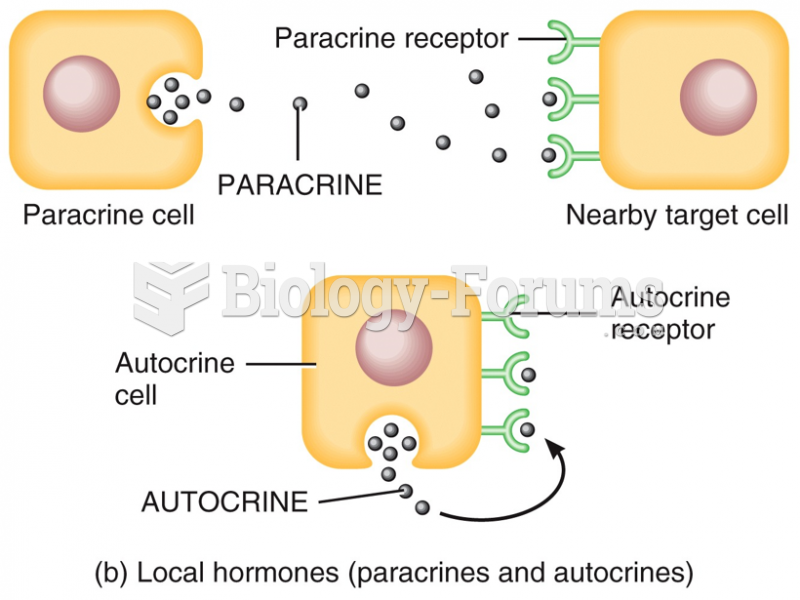Answer to Question 1
Correct Answer: 4
Rationale 1: Lypressin (Diapid) is incorrect because Diapid and Pitressin are used to treat diabetes insipidus.
Rationale 2: Vasopressin (Pitressin) is incorrect because Diapid and Pitressin are used to treat diabetes insipidus.
Rationale 3: Betamethasone (Celestone) is incorrect because Celestone is a glucocorticoid.
Rationale 4: ADH conserves water in the body. It is secreted from the posterior pituitary gland, and acts on the collecting ducts in the kidney to increase water reabsorption. A deficiency of ADH known as diabetes insipidus causes the client to lose large volumes of water. A theory of treatment for enuresis is that these clients might benefit from ADH preparations for bladder control.
Global Rationale: ADH conserves water in the body. It is secreted from the posterior pituitary gland, and acts on the collecting ducts in the kidney to increase water reabsorption. A deficiency of ADH known as diabetes insipidus causes the client to lose large volumes of water. A theory of treatment for enuresis is that these clients might benefit from ADH preparations for bladder control. Lypressin (Diapid) is incorrect because Diapid and Pitressin are used to treat diabetes insipidus. Betamethasone (Celestone) is incorrect because Celestone is a glucocorticoid.
Answer to Question 2
Correct Answer: 4
Rationale 1: Levothyroxine interacts with many other drugs. Cholestyramine decreases the absorption of levothyroxine, which would limit the amount of this drug that enters the client's system.
Rationale 2: Levothyroxine interacts with many other drugs. Cholestyramine decreases the absorption of levothyroxine, which would limit the amount of this drug that enters the client's system.
Rationale 3: Levothyroxine interacts with many other drugs. Cholestyramine decreases the absorption of levothyroxine, which would limit the amount of this drug that enters the client's system.
Rationale 4: Levothyroxine interacts with many other drugs. Cholestyramine decreases the absorption of levothyroxine, which would limit the amount of this drug that enters the client's system.
Global Rationale: Hypolipidemia, hyperthyroid, and hyperlipidemia are incorrect. Levothyroxine interacts with many other drugs. Cholestyramine decreases the absorption of levothyroxine, which would limit the amount of this drug that enters the client's system; therefore, the nurse would monitor for hypothyroid.







